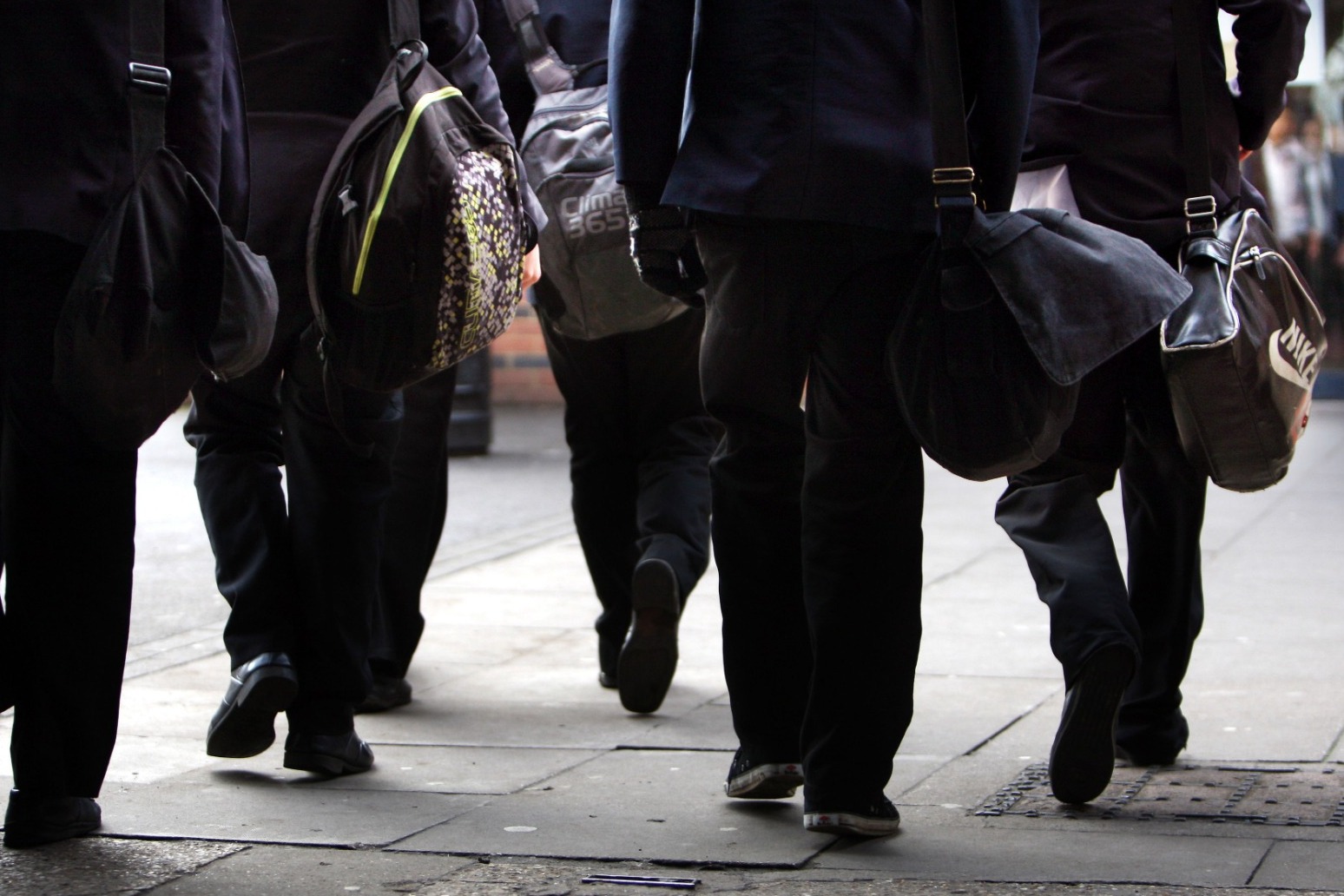
Children’s well-being declines when they go to secondary school, study says
Most young people in the UK experience a sharp decline in their well-being during their first years at secondary school, regardless of their circumstances or background, a study has suggested.
Researchers from Cambridge University and Manchester University analysed the well-being and self-esteem of more than 11,000 young people from across the UK, using data collected when they were 11, and again when they were 14.
The teenagers’ overall “subjective well-being”, defined as their satisfaction with different aspects of life, such as friends, school and family, dropped significantly during the intervening years.
It is widely accepted that young people’s well-being and mental health are influenced by factors such as economic circumstances and family life.
The research shows that, notwithstanding this, well-being tends to fall steeply and across the board during early adolescence.
That decline is probably linked to the transition to secondary school at age 11, according to the study’s authors.
Ioannis Katsantonis, a doctoral researcher at Cambridge’s Faculty of Education who led the study said: “Even though this was a large, diverse group of adolescents, we saw a consistent fall in well-being.
“One of the most striking aspects was the clear association with changes at school.
“It suggests we urgently need to do more to support students’ well-being at secondary schools across the UK.”
The study identified the particular aspects of well-being which changed in early adolescence were typically related to school and peer relationships, suggesting a close connection with shifts in these young people’s academic and social lives.
In addition, students with higher self-esteem at age 11 experienced a less significant drop in well-being at age 14.
This indicates that structured efforts to strengthen adolescents’ self-esteem, particularly during the first years of secondary school, could mitigate the likely downturn in well-being and life satisfaction.
Co-author Ros McLellan, associate professor at Cambridge University and specialist in student well-being, said: “The link between self-esteem and well-being seems especially important.
“Supporting students’ capacity to feel positive about themselves during early adolescence is not a fix-all solution, but it could be highly beneficial, given that we know their well-being is vulnerable.”
The researchers used data from the Millennium Cohort Study, which involves a nationally representative sample of people born between 2000 and 2002, and incorporates standard questionnaires about well-being and self-esteem.
They then calculated a well-being “score” for each student, balanced to control for other factors that influence well-being – such as economic advantage, bullying and general feelings of safety.
While most adolescents were satisfied with life at age 11, the majority were extremely dissatisfied by age 14.
By that age, the well-being scores of 79% of the participants fell below what had been the average score for the entire group three years earlier.
“This is a statistically significant drop,” Mr Katsantonis said. “It goes far beyond anything we would classify as moderate.”
He suggested that celebrating students’ achievements, underlining the value of things they had done well, and avoiding negative comparisons with other students, could all help.
The research is published in the British Journal of Developmental Psychology.
Published: by Radio NewsHub